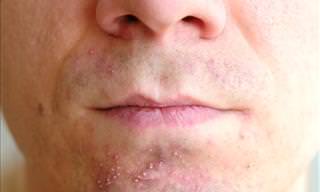The world of skincare is very susceptible to trends. As a result, the risk of picking up skincare products that are completely mismatched with your skin’s needs just because they’re trendy or “natural” is pretty high. But remember - trends come and go, but you only have one skin your entire life. Hence, it’s much cleverer to stick to well-studied, effective skincare that you know your skin loves and needs.
To find these optimal products for you, dermatologists recommend examining the ingredients list of your skincare and picking products with active ingredients aligned with your needs. For example, if you struggle with hyperpigmentation, you need products that will brighten and even out your skin tone.
Below we list 10 effective skincare ingredients and another 5 that dermatologists recommend staying away from. We list the benefits of each ingredient, explain how these ingredients can help the skin, and point towards types of products that typically contain these ingredients.
Retinoids

If you’ve ever researched anti-aging skincare, you’ve likely heard of retinol. This active ingredient is an over-the-counter version of vitamin A, and it’s often called the “gold standard of anti-aging skincare.” Retinol is a retinoid, and so are retinal, tretinoin, and other retinol derivatives. All of these vitamin A products work in a similar way, speeding up the natural skin turnover cycle on a cellular level.
Apart from wrinkle prevention, vitamin A products can diminish fine lines and treat acne. A 2017 study suggests that retinol can treat acne and reduce skin inflammation, whereas an experiment from 2016 supports the “anti-aging” benefits of retinol.
Retinol is present in all kinds of skincare products - from eye creams to serums, oils, and facial moisturizers. Tretinoin and some other retinoids are not available over-the-counter; gels containing tretinoin can only be prescribed by a doctor. The only exclusion to that rule in the US is Differin gel - a retinoid available without a prescription.
Niacinamide
Vitamin B3, or niacinamide, is a rising star in the skincare world, and for good reason. This stable, cell-communicating ingredient has several benefits for the skin, namely:
- Minimizes the appearance of fine lines and wrinkles
- Reduces redness
- Evens out the skin tone
- Diminishes acne
- Provides anti-inflammatory properties
- Boosts your sunscreen’s UV protection
- Lessens skin oil production and refines the appearance of pores.
So who will benefit from this ingredient? According to a 2021 review, this ingredient can help you address a number of skin concerns, from hyperpigmentation to skin redness, wrinkles, overly oily skin, and acne.
Since niacinamide is a very stable ingredient, it’s readily available in countless skincare products, including moisturizers and serums.
Green tea extract
Rich in EGCG and many other antioxidants, green tea is a great drink to enjoy. But these very same antioxidants are also beneficial for the skin. A concentrated (and often fermented) form of green tea called green tea extract is very hydrating and soothing for the skin. It also helps reduce skin redness and protects the skin from the sun’s UV radiation and its harmful effects. A 2019 study also suggests that green tea extract has anti-aging benefits.
You can use strong lukewarm green tea as a hydrating toner. However, the benefits of skincare products containing green tea extract will be more concentrated and potent. Skin toners and many skincare products for the eye area, such as eye cream or eye patches, often contain green tea extract.
Azelaic acid

Don’t be frightened by the word ‘acid’ in this ingredient. This active skincare ingredient is never harsh or irritating on the skin. On the contrary, azelaic acid has potent anti-inflammatory properties, and it’s widely used to treat acne and rosacea (a skin condition that causes blushing, redness, and visible blood vessels in the skin of the face).
According to a 2022 review study, azelaic acid is an effective rosacea treatment and an ingredient that’s beneficial for acne. Another study from 2020 also suggests that azelaic acid is just as effective as tretinoin but less effective than benzoyl peroxide at treating acne. However, unlike the latter, azelaic acid is less likely to dry out and irritate the skin.
This ingredient can be found at a concentration of 10 percent or less in over-the-counter treatments, such as facial moisturizers, lotions, toners, and serums. Products with 15 percent azelaic acid can only be prescribed by a dermatologist.
Please note that azelaic acid doesn’t exfoliate the skin as well as some other acid ingredients. If you’re looking for an exfoliating acid, read this article - An Easy and Effective Method to Make Every Skin Type Glow
Zinc
Zinc is a mineral we need in our diets to stay healthy. Among the many health benefits of zinc is its anti-inflammatory effect on the skin and faster wound healing. For this reason, zinc is present in many skincare products formulated to treat acne, rosacea, and eczema.
Zinc eradicates the P. acnes bacteria that cause pimples and reduces skin oiliness too, making it a great ingredient to prevent or reduce acne. A 2014 review study also suggests that applying zinc topically can help treat eczema and rosacea.
Although few skincare ingredients will advertise having zinc on the bottle, you can turn to the ingredients list and often find it there.
Peptides
Peptides are the amino acids that make up our skin cells. These days, scientists have started making peptides that are easily absorbed by the skin in the lab. Applying products with peptides on the skin can boost the production of collagen, elastin, and hyaluronic acid, which, in turn, slows down the signs of aging and give you stronger, firmer skin.
Smaller studies confirm that applying products with peptides in them for 2 weeks or more can reduce the appearance of wrinkles. So, if you’re concerned with aging skin, pick up a cream with peptides in it. The name ‘peptide’ is often part of the ingredient in the INCI list. Some examples include Palmitoyl oligopeptide, Tripeptide 1, and Palmitoyl pentapeptide (also known as Matrixyl 3000).
Ceramides
Ceramides are another group of ingredients that mimic the natural compounds of the skin. These are skincare ingredients that have the shape of fatty acids naturally produced by the skin. When applied to the skin, ceramides help moisturize and protect the skin from environmental pollutants, dry air, and cold or hot weather.
Ceramides will not clog pores, so they can be used by any skin type, but people with a weak skin barrier and those with dry skin will notice greater benefits from ceramide moisturizers. According to a 2020 research paper, people with eczema have found that applying a lotion with ceramides to the affected areas improved skin hydration and relieved skin dryness.
Like peptides, these ingredients are mainly easy to spot in an ingredients list, as they contain the word ‘ceramide.’ Ceramide 1, ceramide 6, and phytosphingosine are just 3 examples of many existing ceramides in skincare products.
Thermal water
Never heard of thermal water? This ingredient is a classic in French skincare (and you know you can trust French women to know their skincare). Thermal water is mineral-rich water that improves skin suppleness, protects the skin from free radicals, and reduces skin irritation and redness. There’s also some evidence suggesting it can balance the skin’s microbiome, which is why many people with eczema and psoriasis find that thermal water helps calm their skin.
Using thermal water is easy. Simply spray your face with thermal water to cool off and rehydrate throughout the day, or use it as a hydrating toner after washing your face but before applying moisturizer. Last but not least, misting the skin with thermal water on a flight works great too.
Hyaluronic acid
Hyaluronic acid is another very famous skincare ingredient. You may have even heard that this hydrating ingredient can retain up to 1,000 times its weight in water, which is true. This means that it’s super hydrating for the skin, and dermatologists say that it can make your skin appear plumper too.
Hyaluronic acid is naturally produced in the body, but with age, we produce less and less of it, which can make your skin appear parched. Adding some topical hyaluronic acid through a hydrating serum or moisturizer will help restore its natural levels in the skin.
According to a 2021 experiment, middle-aged women noticed improved skin smoothness, hydration, and plumping, as well as a reduction in fine lines and wrinkles when they used hyaluronic acid topically on a daily basis.
Vitamins C and E

Vitamin C is often advertised as one of the most potent brightening and anti-aging skincare ingredients. But few people are aware that it works best when it’s combined with its less glamorous sister ingredient - vitamin E. So, what do these two vitamins do for your skin, and why are they best used in tandem?
Vitamin C - ascorbic acid and its derivatives, such as ascorbyl palmitate - is a potent antioxidant that protects your skin from damage, maintains collagen production, and helps fade hyperpigmentation (such as sun spots and acne scars). This makes vitamin C an excellent ingredient for mature skin. According to a 2017 research paper, applying vitamin C to the skin has an anti-aging effect.
Vitamin E is also a strong antioxidant. It protects the skin from environmental damage and makes your skin’s barrier more resilient. When combined with vitamin C, vitamin E can reduce your risk of sun damage, hyperpigmentation, and skin cancer according to a 2016 research paper.
That is why you’ll often find these two ingredients in facial sunscreens and anti-aging serums. Do keep in mind, however, that you don’t have to apply these ingredients to the skin to reap their benefits. Getting them through consuming plenty of vegetables and fruit works just as well, if not better.
Should I avoid any specific skincare ingredients?

Dermatologists say that the skincare ingredients you need will largely depend on your skin type. Even those tried and tested ingredients we list above don’t work for everyone. So the best course of action is to try a variety of ingredients, one at a time, and see what works and what doesn’t.
That being said, there are certain ingredients generally known to irritate and harm the skin. These include:
- Synthetic fragrance and coloring are known skin irritants. Skip them.
- Coconut oil is great for the hair and body, but on the face, it can clog your pores and cause acne.
- Essential oils - these can be irritating, and you can build up a skin allergy to certain oils, especially citrus, bergamot, and lavender essential oil.
- Propylene glycol - this preservative is used to extend the shelf-life of skin-care products, but it’s irritating so often that the Contact Dermatitis Society called it the 2018 Allergen of the Year.
Note that we didn’t mention all common and effective skincare ingredients in this list. These are just some of the most well-researched, effective, and non-irritating ingredients backed by dermatologists.
H/T: Healthline
 Go to BabaMail
Go to BabaMail



































